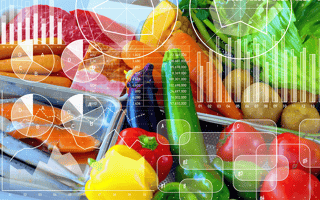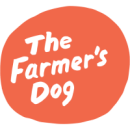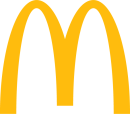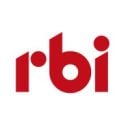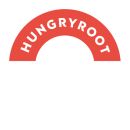Today’s complex ecosystem of food production is a creativity boon. Household names are diversifying their portfolio with modern solutions alongside food tech startups crafting entirely new market sectors.
The global market for food tech was valued at $494.9 billion in 2022, and is set to grow steadily to reach a value of $729.5 billion by 2028, according to research firm Market Data Forecast.
Top Food Companies
- McDonald’s
- Hershey
- Tarro
- Goldbelly
- Nature’s Fynd
- Restaurant365
- Restaurant Brands International
- Samsung Electronics
- Too Good to Go
Here’s a list of companies leading the food industry and bolstering its growth through solutions that merge diners, distributors and developers.
Top Food Companies
Revenue: $30.6 million (annually)
Crafty builds digital solutions to support workplace food programs. Its platform comes with features that cover everything from budget tracking to automating orders based on food and drink consumption. Businesses can use the technology to stock their office kitchens, order catering, establish an onsite cafe or send snack boxes to remote workers.
Revenue: $3 million (annually)
Oishii says it’s on a mission “to change the produce industry and raise the standard of fresh fruit in America.” Its indoor vertical farming facility brings together technology and agriculture best practices to grow pesticide-free, non-GMO strawberries and tomatoes. Its produce is available to consumers through certain grocery stores in New York, New Jersey, Virginia, Maryland, Texas, Pennsylvania and other states.
Revenue: $154.6 million (annually)
The Farmer’s Dog is a pet food company that supplies fresh food to dog owners through a direct-to-consumer model. Customers provide The Farmer’s Dog with information about their pet, and the company creates a food plan that’s personalized based on each dog’s specific portion and nutritional needs. Meals contain human-grade ingredients and are frozen soon after they’re made so they can be shipped to customers’ homes.
Revenue: $14 billion (global annual revenue in Canadian dollars)
McCain Foods operates a portfolio of retail and foodservice brands that deliver food products to customers in dozens of countries. Its namesake McCain brand is known for potato products and appetizers, but the company’s other brands include Van Geloven, which produces frozen snacks, and Infinity Foods, which specializes in frozen foods ranging from potato skins to mac and cheese bites. McCain Foods has over 20,000 employees and more than 50 production facilities across its global operations.
Revenue: Undisclosed
Specializing in corporate food solutions, ezCater offers a platform that’s intended to make it simple to get meals delivered for employee lunches, meetings and other business events from a range of popular restaurants. Its tools include a centralized dashboard for managing food spending and a customizable meal program called Relish that lets businesses set the schedule, subsidy and restaurant options while employees handle their own ordering.
Revenue: $1.5 billion (annually)
Gopuff maintains an inventory of thousands of food and drink products, home essentials such as laundry detergent and even electronics like phone chargers and batteries. Customers shop for goods through Gopuff’s online platform and then their items are delivered to their doorstep. The company’s services are available in locations throughout the United States and the United Kingdom.
Revenue: $3.04 billion (2023)
Instacart uses innovations in areas like data and machine learning to streamline the shopping experience for both businesses and consumers. Users can submit orders for pantry staples, fresh meat and produce, flowers, pet supplies and other goods that they can either arrange to pick up or have delivered to their doorstep. Instacart’s technology and services connect consumers and retailers throughout the United States and Canada.
Revenue: $777.6 million (annually)
Home Chef’s gourmet pre-portioned meal kits promise customers an expedited, simple home cooking experience. The company sets customers up to make a hot home cooked meal with quality ingredients without having to grocery shop, prep ingredients or source their own recipe. Kits arrive at custom intervals and in custom portion sizes so they can feed a single person or a family.
Revenue: $31.5 billion (2022)
Mondelēz International is a multinational food and beverage company that focuses on snacks. The company makes a huge range of candy, cookies, chocolate and powdered drinks with name recognition. It's the parent company to iconic brands like Oreo, Cadbury Dairy Milk, Sour Patch Kids and Trident gum. The company has thousands of employees spread across more than 80 countries.
Revenue: $34 million (annually)
BentoBox’s hospitality tech platform for restaurants and other food service businesses provides a single commerce engine to support guest experience. The platform focuses on customer interaction through order and reservation taking, and on marketing through social media and event promotion, brand identity and growth and customer engagement.
Revenue: $44.1 million (annually)
Tovala is a foodtech company that has paired the benefits of meal kit delivery services — high quality ingredients and home preparation — with those of prepared food delivery — almost no prep or cleanup. Its subscription service delivers almost-fully-prepared meals to be cooked in a dedicated smart oven. Customers scan a QR code to program the oven with the precise directions for preparing each dish.
Revenue: $23.2 billion (2022)
McDonald’s enjoys unparalleled brand recognition as a global fast food chain. Beyond being a food company, however, it’s also a food tech company, and it has invested heavily in tech like AI and IoT to keep innovating the ways it produces and sells food at scale. One of its innovations released in 2022 include an AI-powered ordering system, known as Automated Order Taking.
Revenue: $10.4 billion (2022)
Hershey, the iconic chocolate company, makes much more than the chocolate it started out with. Today, it offers a broad portfolio of classic snacks with name recognition (think Twizzlers and KitKat). Using consumer intelligence to align with the cultural shift toward wellness, Hershey’s has also moved into the “better for you” snack market by acquiring the Lily’s Sweets line of low-sugar chocolate.
Revenue: $61.3 million (annually)
Tarro is a tech platform for independent restaurants that provides everything on the admin side of a food and beverage business: phone and online orders, staffing support, payment processing and marketing. Its mission is to allow local restaurants to operate with the same efficiencies of scale that large chains have access to, and it boasts operating cost reductions and sales increases across its client base.
Revenue: $6.5 billion (2022)
Restaurant Brands International is one of the largest fast food operators in the world, with more than $35 billion in annual sales and over 29,000 locations in 100 different countries, according to its website. A tech team based out of Miami, Toronto and Swiss city Zug has been leading innovation at the umbrella company of Burger King, Canadian coffee chain Tim Horton and Popeyes, rolling out more than 40,000 digital, drive-through menu boards with “predictive selling” features and loyalty program integration.
Revenue: $17.8 million (annually)
Goldbelly is an online delivery platform that ships “iconic” dishes from renowned specialty restaurants to diners’ doorsteps. These meals are typically discovered through viral social media trends or become regionally well known on their own accord. Unlike Postmates or Uber Eats, diners are not limited by their location. Instead, Goldbelly’s platform makes it possible to taste legendary dishes by artisanal eateries from anywhere in the United States for the right price. According to Eater, featured meals kits can range anywhere from $60 to $130, with price points as high as $400.
Revenue: $10.1 million (annually)
InKind is a fintech company reimagining how restaurants are funded through its novel, circular investment model that takes the shape of an app-enabled loyalty program. After buying food and beverage credits upfront, inKind then repackages these credits as gift vouchers sold to customers through an app. So, while restaurant operators maintain full ownership of their establishment and cash up front, diners can explore in-network restaurants and earn bonuses — up to $2,000 — on every purchase. After breaking ground in Austin, Texas, inKind told Built In that diners using the app spend 80 percent more per visit and return 2.5 times as often.
Revenue: $281.9 million (annually)
King’s Hawaiian, a family-owned company best known for its sweet bread dinner rolls, is tackling tech innovation with a QR-code embedded augmented reality experience at their store displays. Once scanned, customers enter the “Say Aloha to Flavortown” scavenger hunt, starring restaurateur Guy Fieri, to collect points around the store that may add up to a culinary trip to Hawaii.
Revenue: $48.2 million (annually)
Nature’s Fynd is a food tech company that develops microbe-based proteins for meat and dairy substitutes, including its meatless breakfast patties and dairy-free cream cheese. Inspired by a NASA-funded study of extremophiles, which documented microorganisms that live in extreme environments like Yellowstone National Park’s volcanic springs, the company has developed a fermentation process that grows a fungal protein using minimal resources, according to its website.
Revenue: Less than $5 million
Aromyx is a biotech company applying sensory science to consumer insight research. In place of purchasing behavior, Aromyx is building a quantitative system that measures crowd favorite tastes and smells to craft a precisely curated shopping experience. To do this, Aromyx combines lab screening and analysis with questionnaires to predict a target audience’s reaction to a specified product, spanning from food, beverage and beauty to pharmaceuticals.
Revenue: Not publicly available
Evoware is a sustainable packaging company that’s rethinking plastic with its biodegradable, seaweed-based packaging solutions. This raw material is not only home compostable, but edible. Replete with fiber, vitamins and minerals, its sachets and cups double as a nutritional snack, so you can order a parcel and eat it too. Cassava, rice, sugarcane, bamboo, birchwood and palm tree leaves are also featured in Evoware’s product line.
Revenue: $1.7 million (annually)
Launched out of MIT, Fyto is an agricultural tech company developing nutrient-dense crops to assist farmers and aid long-term sustainability. Its proprietary software system automates year-round production of lemna, a protein-rich, aquatic duckweed, as an alternative additive to livestock fodder, plant-based products, biofertilizers and soil amendments. Fyto’s “superplants” generate a smaller carbon footprint as well as a protein-per-acre yield 10 to 20 times higher with five to 10 times less water required of conventional feed ingredients, as reported by online outlet Agfunder News.
Revenue: $16 million (annually)
Headquartered in Berlin, Germany, Klim is an agricultural tech company using its smartphone app as a way to help food producers practice regenerative farming methods. This is a rehabilitative approach to agriculture that actively removes carbon from the atmosphere using readily available techniques from its arsenal of climate-reversing tactics. Farmers can archive their progress on Klim’s platform to earn revenue payouts over the course of their transition away from conventional methods.
Revenue: Less than $5 million
Based in Hamburg, Germany, MicroHarvest is a biotech startup producing protein alternatives from tanks of bacteria. According to its website, these microbes outpace current protein-production methods — with a one-day cycle completion from single-cell, raw materials to final product — and contain over 60 percent protein.
Revenue: $2.8 million (annually)
Mouth is an online marketplace curating a menu of specialty food finds collected from indie distributors. This Brooklyn startup sells single items, small batches and subscriptions of eccentric, edible treats, from chocolate covered pumpkin seeds to pickle-themed gift boxes.
Revenue: $1 million to $5 million
In an effort to reduce food waste, Korean food tech company Nuvilab developed an app-accessible digital scanner backed by artificial intelligence and big data. Whether implemented for personal health care usage or as a tool for cafeteria management, the real-time food scanner lifts data from a single image to calculate the serving size and caloric value of a plate.
Revenue: $34.6 million (annually)
Provi is an online marketplace of wholesale alcohol designed to serve all three tiers of the supply chain: suppliers, distributors and buyers. In 2021, the company launched two new features as part of its e-commerce toolkit: Sell Sheets, a curated, click-to-order list of new and relevant products for sales reps, and Storefronts, a configurable landing page that dedicates a space for distributors within the Provi platform. Partnerships with online marketplace SevenFifty and alcohol distributor Johnson Brothers have significantly expanded its catalog, further establishing Provi as an all-in-one destination site.
Revenue: $152 million (annually)
Restaurant365 offers software as a service in its cloud-based enterprise management platform that centralizes accounting and back-office operations for restaurants. In one place, companies can schedule labor, calculate inventory in real time, auto-update costs and even keep track of recipes. The company has also rolled out a digital, mobile-first manager logbook to optimize shift-to-shift communications and R365 Payments, a fully integrated accounts payable automation solution.
Revenue: $234 billion (2022)
Household electronics brand Samsung launched a line of AI-enhanced cooking appliances this year, namely its Bespoke AI Oven. This smart oven uses cooking presets and an internal camera that monitors a dish, preventing burns or even housefires by sending push notifications to the chef. Users’ can also use its image recognition technology to add variation to their diets, which analyzes menu history in order to suggest new recipes made up of frequently used ingredients in a cook’s repertoire.
Revenue: Less than $5 million
Season is a digital food pharmacy reframing food as medicine. The platform connects users with tools to assist in their health goals, including one-on-one meetings with a registered dietician, thousands of chef-designed recipes, pre-made meals and a dashboard to track progress. Currently, its preset menus cater to diabetic or pregnant diets.
Revenue: $4.5 million (annually)
Solar Foods is a biotech company that produces a nutrient-dense protein product, Solein, from air and electricity. Splitting hydrogen from oxygen, the company’s bioprocess consists of a fermentation practice that feeds a single-cell microorganism with renewable energy until it multiplies into a functional protein powder.
Revenue: $14.7 million (annually)
Solynta is a Dutch biotech company making high-speed, hybrid potato breeding possible as part of a global solution to food and nutritional insecurity. According to its website, the company is structured around four United Nations Sustainable Development Goals: “zero hunger,” “good health and wellbeing,” “decent work and economic growth” and “climate action.” Solytna’s bioengineering develops climate-change resistant and disease-repellent crops at high yields and three times the speed. These hybrid “true seeds,” as the company calls them, have the ability to be produced in one season, versus a five-year cycle of traditional seed tubers.
Revenue: $504.6 million (annually)
Too Good To Go offers an app where businesses sell their surplus supply to shoppers looking for a discount in an effort to combat food waste. Users select an assortment of local establishments, and collect a mystery bag of goodies during a preset collection window. According to the company’s website, 179,400 eateries are connecting 72 million people to treats, meals and groceries that would have otherwise been tossed away.
Revenue: Less than $5 million
San Francisco Bay Area food tech startup Umaro Foods has made a plant-based bacon from ocean-farmed seaweed. A proven superfood, the red seaweed used in the proprietary recipe contains hydrocolloids that mimic bacon fat and a savory, meat-like umami flavor.
Revenue: $9.3 million (annually)
Meat production company Vow is creating a new food category using molecular-level biotech. “In a matter of weeks,” its website says, “we go from a handful of cells to an abundance of delicious, nutritious and sustainable meat.” The Wales-based team of engineers and scientists place cellular animal biopsies in a nutrient-dense, climate-controlled cultivator, manipulating flavor, texture and aroma before it multiplies into a final product. The company’s unique approach to food processing aims to optimize nutrition, minimize animal cruelty, replete resources and feed populations at scale.
Revenue: $39.5 million (annually)
Ahold Delhaize USA is an omnichannel grocery retail group with over 2,000 stores and a significant e-commerce presence across the eastern United States. The company is powered by technology teams focused on adaptable solutions, reusable design and optimizing customer experiences. These teams aim to drive key functions such as demand planning, e-commerce forecasting and fulfillment models to support the success of its retail brands.
Revenue: $333 million (2023 net revenue)
Hungryroot is a delivery service that provides consumers with groceries as well as ready-to-eat meals that align with dietary needs, including anti-inflammatory, dairy-free and gluten-free diets. Customers get started with Hungryroot by answering questions about their food preferences and nutrition goals so they can get set up with a personalized food plan.
Revenue: $17.8 million (annually)
Sysco LABS is the digital innovation arm of Sysco, a wholesale distributor of food and other supplies for restaurants. For example, the team at Sysco LABS is responsible for developing and optimizing the Sysco Shop e-commerce platform, which simplifies ordering for Sysco customers via mobile and web formats.
Revenue: $643.8 million (annually)
Grubhub builds technology that enables food delivery and pickup orders across more than 4,000 cities throughout the United States. Consumers can access Grubhub’s services through its website or mobile app. The platform provides users with notifications so they can keep track of order progress and allows them to easily place repeat orders for their favorite meals.
Revenue: $64 million (annually)
ChowNow supports the restaurant industry from behind-the-scenes by providing solutions for customer service, marketing, ordering and delivery. Its services are entirely commission-free and the platform handles organization, management and automation.
Revenue: $160 billion (fiscal year 2024)
Cargill provides food, ingredients and agricultural solutions with the goal of “nourishing the world” safely, responsibly and sustainably. According to the company, it received multiple 2025 BIG Innovation Awards for its work in gut-health ingredients, alternative proteins and crop innovations.
Revenue: $16.9 million (annually)
Tastewise has an AI-powered consumer intelligence platform that analyzes billions of real-time data points for food and beverage brands. It uses data to reveal to its clients what consumers truly want to eat and drink. This helps its clients optimize marketing strategies, launch better products and create more sustainable food.
Revenue: $700 million
Thrive Market was founded in 2014 and became a Certified B Corporation in 2020, offering memberships for sustainable and healthy grocery delivery. It offers food, beauty and health products for a variety of diets and conditions like keto or celiac disease. For every paid annual membership, the company sponsors a free one-year membership for a family in financial need.

